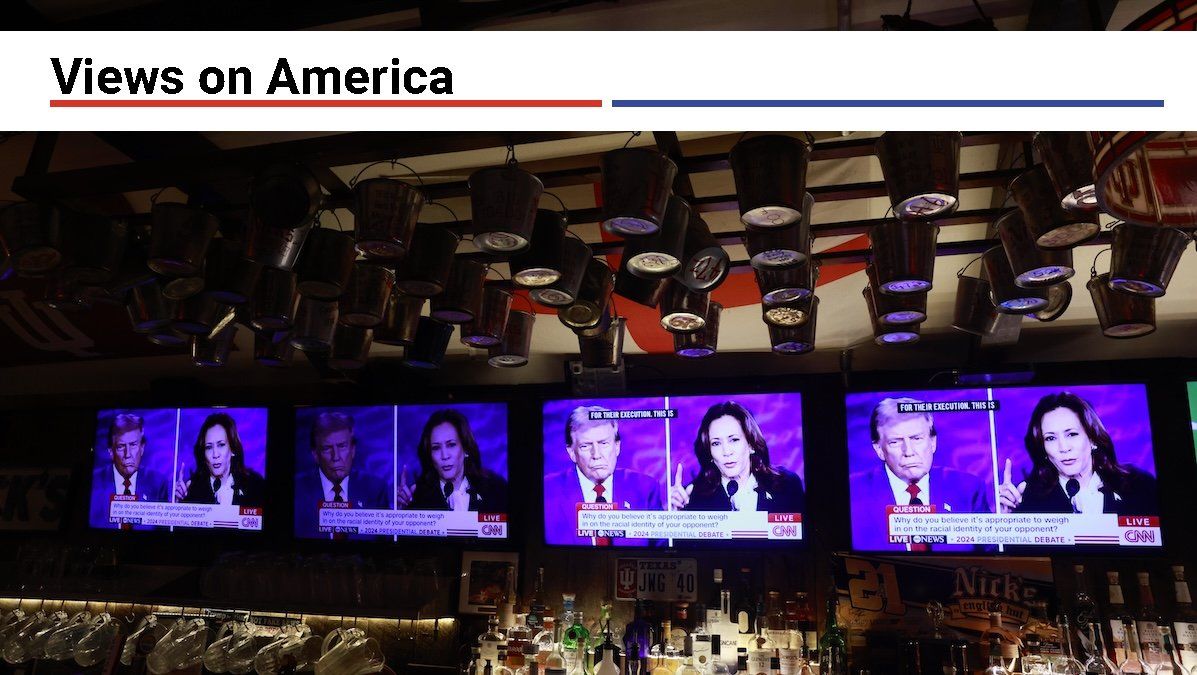Last week’s presidential debate between Vice President Kamala Harris and former President Donald Trump marked the final scheduled milestone before Election Day on Nov. 5. It also bookended a summer of surprises that began with President Joe Biden’s disastrous debate performance against Trump on June 27.
With no additional tests on the calendar after Trump quelled the possibility of a follow-up debate, and as the race enters its closing stages, both campaigns should be asking themselves what more they must do to win in November.
For Trump, the answer may be very little. Since the start of 2024, Trump’s favorability rating has hovered consistently around 43%. His polling averages have maintained a narrow bandwidth of roughly 45-47%. Over the same period, Trump defeated a primary pool of Republican presidential hopefuls, became the first former president to be convicted of a crime (sentencing on 34 felony convictions will be after the election), faced an attempt on his life at a campaign rally, selected a largely unfavorable running mate in Sen. JD Vance, and saw his long-preferred opponent replaced with an untested female candidate. An incident this weekend at the Trump International Golf Club in West Palm Beach is being investigated as a second assassination attempt against Trump.
In economic terms, sentiment and intentions around Trump appear to be rigidly inelastic. Should Trump continue along this course, which would seem to allow for quite a wide margin of behavior and developments, it is already fairly clear where he will land in November. As in both 2016 and 2020, Trump is likely to secure approximately 46% of the popular vote. The election in 2016, of course, brought Trump to power. The election in 2020 saw him removed from the White House.
Continuing with the analogy, Harris’ prospects are much more subject to “price sensitivity.” Harris’ potential ceiling of support is a meaningful known unknown. When she entered the race in July, only 37% had a favorable view of the VP, who had played a largely behind-the-scenes role in the Biden administration and had not caught fire during her presidential run in 2020. By mid-September, Harris’ favorability is at 46% and climbing. The nearly 10% swing in popularity suggests she may not yet have reached her favorability peak.
On voting intentions, much was made earlier this month of a poll that found Trump leading Harris by a single percentage point. A widely circulated interpretation of the poll was that, after a remarkable run in August, Harris had reached an inevitable campaign skid. Yet, over the period polled, Trump continued to absorb votes from Robert F. Kennedy Jr.’s suspended campaign that, at its peak, pulled in 10% of the votes. With aggregate polling placing Harris ahead of Trump in national averages, she may be outpacing him in voter support.
Still, given the particularities of the US electoral college system, to win the election in November Harris must not only secure enough votes, but she must secure enough votes in the right places. Conventional wisdom holds that to clinch this geographic vote allocation, Harris will need to lead Trump in national averages by multiple percentage points going into Election Day (perhaps even upwards of four percentage points). Hillary Clinton learned this the hard way in 2016 when she won the popular vote but not the Oval Office. Biden made sure he remembered Clinton’s lesson in 2020.
Harris’ campaign strategy since entering the race appears to be an appetizer of generic Democratic policy and a main course of good vibes. To translate this recipe into further polling gains, Democrats must execute a coordinated ground operation, leveraging the uptick in campaign volunteers since Harris became the party’s nominee. Harris’ campaign must also remain hyper-focused on undecided voters across key swing states like Arizona, North Carolina, Pennsylvania, and Wisconsin. Her intentional reference to 800,000 Polish Americans living in Pennsylvania during the debate exchange on Russia reflects an awareness that this election will come down to just a few thousand voters across a handful of swing states.
And in a year that saw George Clooney effectively end Biden’s candidacy, the power of Taylor Swift’s post-debate endorsement of Harris cannot be discounted. Turning out voters is the task at hand, and Swift’s support has already reportedly led hundreds of thousands to consider casting their votes.
This has been a noisy election season. After primaries, conventions, assassination attempts, a candidate swap, and two consequential presidential debates, both campaigns have nothing left to do but head for the finish line. With Trump’s favorability and polling essentially known, the signal that’s emerging is: This is Harris’ race to win.
Lindsay Newman is a geopolitical risk expert and columnist for GZERO.
